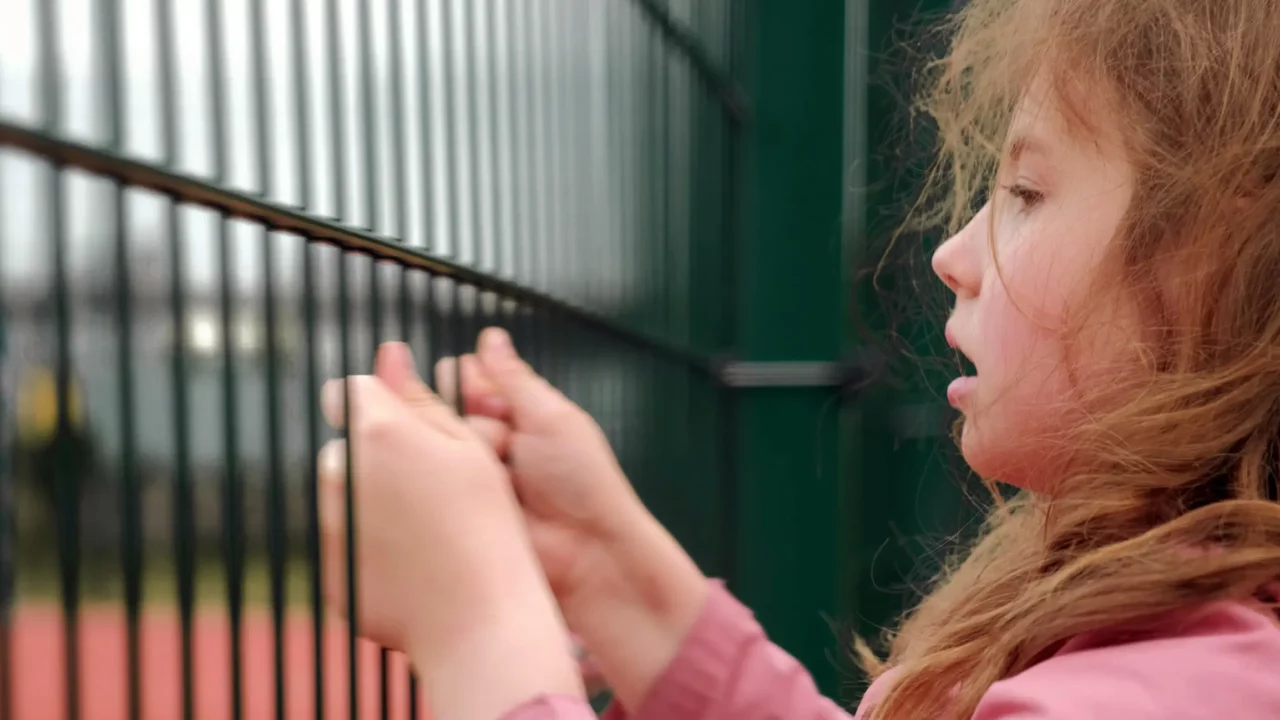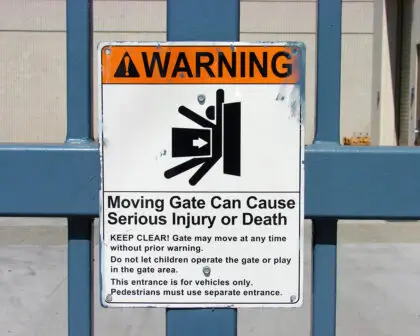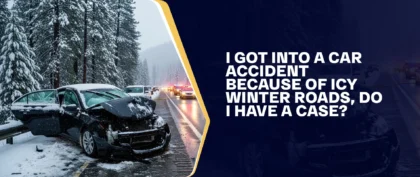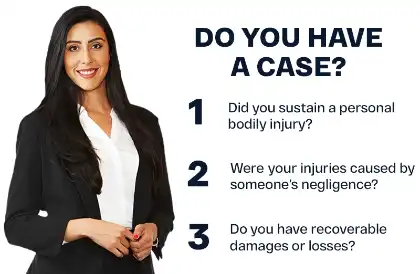Table of Contents
Navigating Liability: Who Bears The Responsibility When Automatic Parking Gates Cause An Injury?
In this modern world, where technology is advancing at an unprecedented pace, we face a unique challenge: determining liability when automatic parking gates cause an injury. As these automated systems become increasingly prevalent, they raise important questions about who bears the responsibility for accidents and injuries that occur as a result of their malfunction or misuse. Is it the manufacturer, the property owner, or perhaps the individual using the gate? Navigating this complex landscape requires a deep understanding of the legal intricacies surrounding liability.
In California, automatic parking garage gates are subject to premises liability laws in cases of injuries. Property owners and managers are responsible for maintaining the premises in a safe condition and for any injuries resulting from negligence. Additionally, the gate manufacturer may be held responsible for any defects in the gate design or construction. In this article, our premises liability attorneys will examine the factors that influence responsibility in parking lot accidents and outline the legal implications for all parties involved.
Understanding Liability In Personal Injury Cases
Liability in personal injury cases is a legal concept that determines who is responsible for compensating the injured party. When it comes to automatic parking gates, establishing liability requires a careful examination of the circumstances surrounding the accident. In general, liability can be attributed to one or more of the following parties, including the gate manufacturer, the property owner, or the individual using the gate.
To determine liability, courts often consider factors such as negligence, duty of care, and foreseeability. Negligence refers to the failure to exercise reasonable care, while the duty of care refers to the legal obligation to act in a way that avoids harming others. Foreseeability, on the other hand, refers to the ability to anticipate and prevent potential harm. These factors play a crucial role in determining who should be held responsible for an accident involving an automatic parking gate.
In automatic parking gate injury cases, it is crucial to determine whether the gate malfunctioned due to a manufacturing defect or if the accident resulted from negligence on the part of the property owner or user. By carefully examining the evidence and considering the relevant legal principles, courts can determine the party or parties responsible for the injury and allocate liability accordingly.
Factors That Determine Responsibility In Automatic Parking Gate Accidents
When it comes to determining responsibility in automatic parking gate accidents, several factors come into play. These factors include the condition and maintenance of the gate, the actions of the user, and any potential manufacturing defects. Let’s take a closer look at each of these factors:
- Condition & Maintenance of the Gate — Property owners have a duty to maintain their automatic parking gate in good working condition and to keep it properly maintained. Regular inspections, maintenance, and professional gate repairs are essential to prevent malfunctions that could result in injuries. If it can be proven that the property owner failed to fulfill this duty, they may be held liable for any accidents or injuries that occur as a result.
- Actions of the User — The user of the automatic parking gate also has a responsibility to operate it safely and in accordance with any posted instructions or warnings. If it can be shown that the user acted negligently or recklessly, such as by failing to use caution or deliberately bypassing safety features, they may be partially or wholly responsible for the accident.
- Manufacturing Defects — In some cases, accidents involving automatic parking gates may be caused by manufacturing defects. If it can be established that the gate was defectively designed or manufactured, the gate manufacturer may be held liable for any resulting injuries. Additionally, maintenance providers may be held responsible if they fail to identify or address any known defects during routine inspections.
By carefully considering these factors, courts can determine the degree of responsibility that each party holds in automatic parking gate accidents and allocate liability accordingly.
Case Studies Of Automatic Parking Gate Accidents And Liability
To further illustrate the complexities of liability in automatic parking gate accidents, let’s examine a few real-life case studies:
- Case Study 1 — In a shopping center parking lot, an automatic parking gate closes on a vehicle as it is entering, causing damage to the car and injuries to the driver. Upon investigation, it was revealed that the gate’s sensors were not properly calibrated, resulting in the malfunction. In this case, both the property owner, for failing to properly maintain the gate, and the gate manufacturer, for the defective design, may be held liable for the damages and injuries.
- Case Study 2 — A person attempts to bypass an automatic parking gate by manually lifting the barrier. In doing so, the gate unexpectedly closes, causing injuries to the individual. In this scenario, the user may be partially responsible for the accident due to their reckless behavior. However, if it can be proven that the gate lacked adequate safety mechanisms or clear warnings against such behavior, the property owner and the gate manufacturer may also share liability.
These case studies demonstrate the importance of thoroughly examining the circumstances surrounding automatic parking gate accidents to determine liability. Each case is unique and requires a careful analysis of the evidence and applicable legal principles.
The Role Of Property Owners & Managers In Automatic Parking Gate Safety
California property owners and managers are required to adhere to safety regulations regarding the maintenance and operation of automatic parking gate systems. They must check if the gates are properly maintained and that the proper safety protocols are in place. Additionally, they must keep records of any inspections, repairs, and maintenance of the gates and know if any employees or visitors are adequately trained and aware of the potential hazards associated with the gates. Failure to adhere to these regulations can result in liability for any injuries that occur due to negligence.
In addition to maintenance, property owners and managers should also invest in user education and awareness. Clear signage, instructions, and warnings should be displayed near the gate to inform users of potential risks and proper usage. By taking these proactive measures, property owners and managers can help prevent accidents and minimize their liability in automatic parking gate injury cases.
The Responsibility Of Gate Manufacturers And Maintenance Providers
Gate manufacturers and maintenance providers also bear a significant responsibility in preserving the safety of automatic parking gates. Additionally, manufacturers have a duty to design and produce gates that meet industry standards and incorporate sufficient safety features. Any defects in the design or manufacturing process can potentially lead to accidents and injuries, for which the manufacturer may be held liable.
On the other hand, maintenance providers have a duty to conduct thorough inspections and promptly address any known issues that may arise. Regular maintenance and repairs are essential to maintain the gates’ proper function and pose no unnecessary risks to users. If a maintenance provider fails to fulfill their duty, and an accident occurs. As a result, they may be held liable for the injuries and damages that occur.
To promote safety and minimize liability, gate manufacturers and maintenance providers should prioritize quality control, regular inspections, and ongoing staff training. By exercising due diligence in the design, production, and maintenance of automatic parking gates, these parties can help prevent accidents and protect themselves from potential legal consequences.
Legal Considerations & Potential Defenses In Automatic Parking Gate Injury Cases
When it comes to automatic parking gate injury cases, several legal considerations come into play. It is important to understand these considerations to effectively navigate liability and potential defenses. Some key legal factors include:
- Statute of Limitations — Like any personal injury case, there is a limited time within which an injured party can file a claim. It is crucial to be aware of the statute of limitations in your jurisdiction and take prompt action to protect your rights.
- Comparative Negligence — In some cases, the injured party may be partially responsible for their own injuries. This concept of comparative negligence reduces the amount of compensation they may be entitled to based on their degree of fault. It is important to gather evidence and present a strong argument to minimize any potential comparative negligence findings.
- Assumption of Risk — If the injured party voluntarily assumed a known risk associated with using the automatic parking gate, they may have a limited ability to seek compensation. However, this defense is not typically applicable and depends on the specific circumstances of the case.
- Product Liability — In cases where a manufacturing defect causes the accident, the injured party may pursue a product liability claim against the gate manufacturer. Product liability laws vary by jurisdiction, so it is important to consult with a knowledgeable personal injury attorney to understand your rights and legal options.
Understanding these legal considerations and potential defenses is crucial when pursuing a claim for an injury involving an automatic parking gate. Seeking legal advice from an experienced personal injury lawyer can help protect your rights and pursue appropriate compensation.
Steps To Take If You Are Injured By An Automatic Parking Gate
California property owners and managers are required to adhere to safety regulations regarding the maintenance and operation of automatic parking gate systems. They must maintain the gates and implement the proper safety protocols.
Additionally, they must keep records of any inspections, maintenance service calls, and any other professional commercial gate repair services you have had done. They should also verify that all employees and visitors are adequately trained and aware of the potential hazards associated with the gates. Failure to adhere to these regulations can result in liability for any injuries that occur due to negligence.
If an automatic parking gate injures you, consider the following steps to help protect your rights and strengthen your potential legal claim:
- Seek Medical Attention — Your health and well-being should be the priority. Seek immediate medical attention for any injuries sustained as a result of the accident. Document all medical treatments, diagnoses, and expenses related to your injuries.
- Gather Evidence — Collect as much evidence as possible to support your claim. This may include photographs or videos of the accident scene, witness statements, maintenance records, and any relevant documentation or correspondence.
- Report the Incident — Notify the property owner or manager of the accident. Request a copy of the incident report and keep a record of all communications.
- Consult with an Attorney — It is recommended to consult with a personal injury attorney who handles premises liability and product liability cases. An experienced injury lawyer can assess the merits of your case, guide you through the legal process, and help you pursue the compensation you may be eligible for.
Taking these steps can significantly support your case and increase your chances of obtaining a favorable outcome.
The Importance Of Seeking Legal Representation In Automatic Parking Gate Injury Cases
California law requires parking gate operators to follow specific safety procedures. If an individual is injured due to a parking gate operator’s negligence, they may be eligible for compensation. However, navigating the legal process can be difficult, so seeking legal representation is important to help assert an individual’s rights and pursue available compensation.
Automatic parking gate injury cases can be complex and challenging to navigate. An experienced personal injury lawyer will be able to provide guidance and support throughout the legal process. The legal landscape surrounding liability is intricate, and the potential defenses that may be raised by the opposing party can be formidable. That is why seeking legal representation from an experienced personal injury attorney is vital.
An attorney who handles automatic parking gate injury cases can provide invaluable guidance and support throughout the legal process. They have a thorough understanding of the relevant laws, regulations, and case precedents, allowing them to build a strong case on your behalf.
Additionally, an injury attorney can handle all communication and negotiation with the opposing party and their insurance companies. They will advocate for your rights, working to protect your interests and help you pursue compensation for your injuries, medical expenses, lost wages, pain, and suffering.
By seeking legal representation, you can level the playing field, protect your rights, and improve your position in pursuing a positive outcome in an automatic parking gate injury case.
Promoting Safety And Accountability In Automatic Parking Gate Systems
As automatic parking gate systems become increasingly prevalent, it is crucial to address the issue of liability when accidents and injuries occur. By understanding the factors that determine responsibility, such as the condition and maintenance of the gate, the actions of the user, and potential manufacturing defects, we can promote safety and accountability in these systems.
In California, legislation has been passed for the safety of automatic parking gate systems. This includes requiring the installation of safety features such as photoelectric eye sensors and gate speed limiters. The state also requires periodic inspections of the gates to maintain their proper function and that operators meet all of its safety requirements.
Additionally, property owners can be held accountable for any injuries caused by malfunctioning gates and must prove that they have taken reasonable steps to avoid such accidents. Property owners must also post warning signs about the potential hazards associated with the automated gates and provide regular training to employees on the proper operation and maintenance of these gates. As technology continues to advance, it is crucial that we address the legal implications and complexities surrounding automated parking gates.
In California, when injuries arise from the malfunction or mishap of an automatic parking gate, determining responsibility often centers on principles of premises liability and product liability. It is essential to take prompt action, gather evidence, and seek legal representation from premises liability lawyers. By following these steps, they can protect their rights, navigate the complex legal landscape, and pursue compensation for their medical bills, lost wages, and other damages.
Property owners, managers, or those in control of the premises have a duty to maintain a safe environment, which includes ensuring that automated parking gates operate safely. If negligence in maintenance or operation is evident, they could be held liable.
Furthermore, if the injury stems from a product defect, the manufacturer or installer of the gate might be held accountable. As with most personal injury matters, such as car accidents or truck collisions, it’s advisable to consult with a California personal injury attorney to navigate the nuances of liability and seek compensation for damages and losses.































